Tech giants launch war on waste to stop energy-hungry data centres derailing climate plans
The tech titans are the biggest buyers of solar and wind energy but that’s not enough to offset the rapid rise of data centres that power the AI boom. Here’s how they plan to stay green.
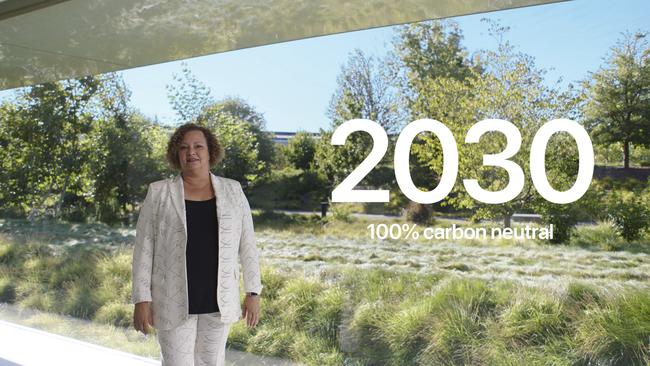
Tech giants are doubling down on their pledges to slash carbon emissions despite the artificial intelligence boom – and its energy-hungry data centres – threatening to derail the push to go green.
AI mania has up-ended many tech companies’ plans to combat climate change, given data centres require massive amounts of energy for silicon chips – the building blocks for cloud computing and AI. What’s more, to prevent those chips from malfunctioning, more cooling is needed, using more energy and water.
Data centre operators say they use a fraction of the power metal manufacturers use, while AirTrunk founder and chief executive Robin Khuda says the company is one of the biggest buyers of renewable electricity and is stepping up investment in battery storage.
But solar and wind isn’t enough to meet the dramatic rise of AI, with popular generative AI platform ChatGPT using at least 10 times more power than a standard Google search. And Google – which uses about 16.2 billion litres of water a year to cool its data centre fleet – is incorporating its Gemini AI platform into its searches in the US and elsewhere, transforming the way we use the internet and fuelling even greater demand for conversational AI.
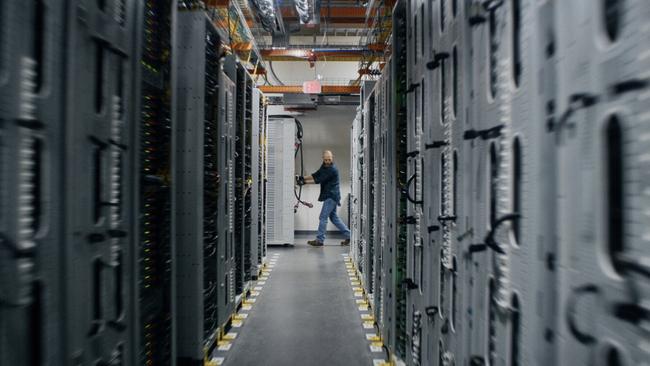
This has created a problem for the world’s biggest tech companies and their sustainability commitments, prompting them to use a variety of strategies to hit their goals.
Amazon – the world’s biggest data centre via its subsidiary AWS – plans to hit zero carbon emissions by 2040 and has been steadily increasing investments in its $US2bn ($2.98bn) Climate Pledge Fund to meet that target.
Apple, which will launch its AI offering dubbed ‘‘Apple Intelligence’’ in Australia in December, says it will be carbon-neutral by the end of the decade, as it uses more recycled materials – swapping energy and carbon-intensive steel for titanium in its watches, for example – and invests in solar and wind energy. Apple says it uses 18 gigawatts of “clean electricity” to power its global operations and manufacturing supply chain.
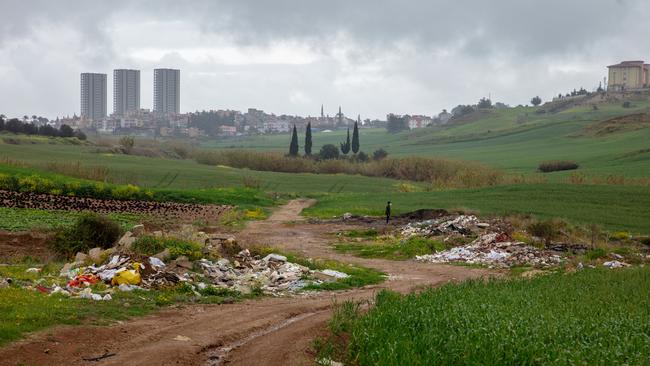
Uber has reiterated its commitment to be a fully electric, zero-emission platform by 2030 in Canada, Europe and the US, and by 2040 globally, despite sluggish EV take-up. It’s also developing a new sustainable packaging standard for its Eats food delivery product with Planet Ark, saying non-reusable materials that protect takeaway orders represent one of the “hardest sustainability problems”.
But not all companies appear as committed to using their best talent to help slash emissions.
Areeb Malik – co-founder and chief technology officer at Glacier, which has received funding from Amazon’s Climate Pledge Fund – created his own company after spending more than five years as a senior software engineer at Meta’s Facebook and becoming increasingly frustrated. “My past is at a well known tech company run by a certain (Mark) Zuckerberg where there are rooms full of talented, passionate, hardworking people and – myself included – we were all working on just the silliest things,” Mr Malik said.
“I spent like two years moving buttons around on a UI (user interface) for your phone, and I was like, ‘what a waste of talents’. There are so many problems out there, specifically in the climate space, that need people to think about these resources. It was a shame for me to be in that space and not be doing something.
“In 2018 when I looked around to see what opportunities were there, there were so few that it became obvious that I wanted to create. And there were other people like me.”
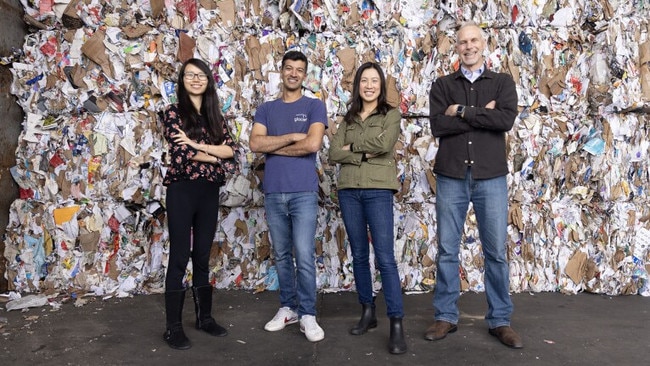
Glacier uses AI-powered robots to automate the sorting of recyclables with a goal of creating a “world without waste”.
Amazon has also invested in Paeble, which turns building materials into a “permanent carbon sink”. It locks CO2 into concrete, the world’s second most used material, and Amazon is trialling its technology in the construction of one of its European data centres.
It has also invested in 14Trees, which is also “accelerating the delivery of lower-carbon buildings” via 3D printing technology. Amazon says this will “help pave the way for state-of-the-art lower-carbon data centres, large-scale buildings and utilities in Europe and the US”.
Apple has redesigned its popular products, including iPhone, its watches and iPads to be more sustainable. It says the new iPhone 16 Pro and iPhone 16 Pro Max feature more than 25 per cent recycled materials.
Apple vice-president of environment, policy and social initiatives Lisa Jackson, said the company was “racing toward our ambitious Apple 2030 climate goal while taking on the long-term work to transform electrical grids and restore watersheds to build a cleaner future for all”.
“Clean energy and water are foundational to healthy communities and essential building blocks for a responsible business,” Ms Jackson said.
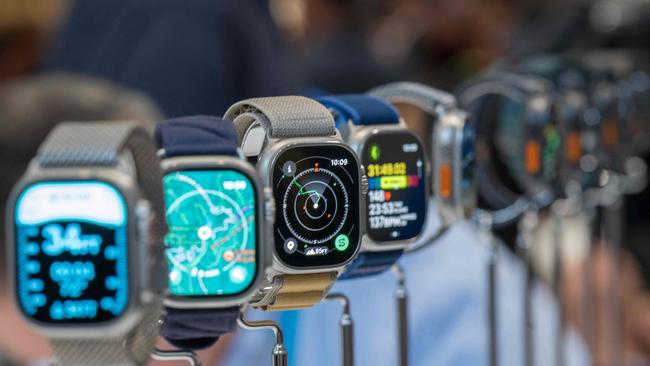
This includes Apple launching new partnerships to deliver nearly 26.5 billion litres in water benefits – from restoring aquifers and rivers, to funding access to drinking water – over the next 20 years.
The Apple Watch, meanwhile, is the company’s first “carbon-neutral product”, achieved by “dramatically reducing carbon emissions across the three biggest sources – materials, electricity, and transportation”.
Uber global of head of delivery sustainability Fay Alqassar said food packaging was one of the hardest environmental problems, with its Uber Eats merchants selling “hundreds of thousands of orders a month”, and “each order has five to 10 packaging items included – a lot of which are made from unrecyclable material that typically ends in landfills”.
But Ms Alqassar said sustainable packaging had to “be as good or as better than regular stuff”.
“And it turns out that’s really hard. When food gets delivered, it needs to be hot, it can’t leak. That’s easy if we’re talking about a burger but if we’re talking about something like a curry, things start to get messy,” she said.
Sustainable packaging also has different meanings, leading to confusion. For example, look at most takeaway coffee cups – the top can be recycled but bottoms cannot be. Then some are 100 per cent compostable.
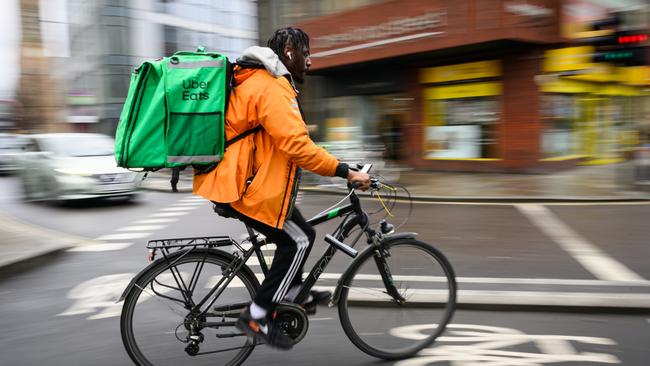
Ms Alqassar said Uber had partnered with Planet Ark to develop a new standard for sustainable packaging, and it would remove “damaging plastics from deliveries by 2030”.
To achieve this goal, it has launched a $US1m pilot in Paris to help restaurants to adopt more sustainable packaging. It is also offering merchants discounts through its market place to use products like Notpla’s seaweed-based packaging and Releaf’s lead-made bags.
Uber will also give the top 10 merchants in every market “who have reached our highest standard of sustainable package, $US50,000 each to help them do even more” and encourage others to make the switch.
Originally published as Tech giants launch war on waste to stop energy-hungry data centres derailing climate plans



